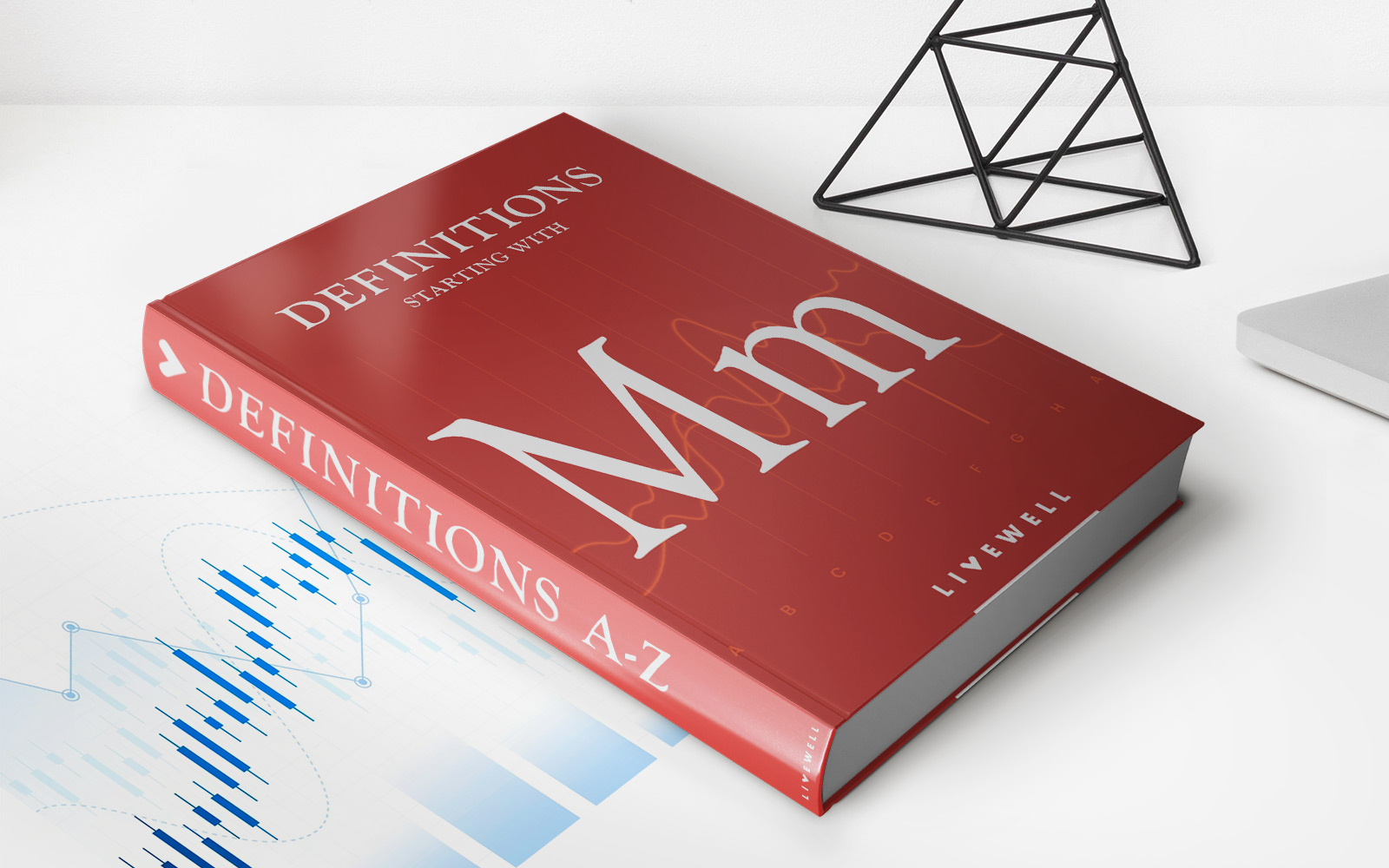Home>Finance>What Happens If You Don’t Pay The Full Statement Balance


Finance
What Happens If You Don’t Pay The Full Statement Balance
Published: March 2, 2024
Learn the consequences of not paying your full statement balance on time and how it affects your finances. Understand the impact of carrying a balance and potential fees.
(Many of the links in this article redirect to a specific reviewed product. Your purchase of these products through affiliate links helps to generate commission for LiveWell, at no extra cost. Learn more)
Table of Contents
**
Introduction
**
Managing personal finances involves various responsibilities, and one crucial aspect is ensuring that credit card balances are paid in a timely manner. When individuals receive their credit card statements, they are presented with the option to pay the full statement balance or the minimum payment due. While it may be tempting to opt for the minimum payment, it’s important to understand the potential repercussions of not paying the full statement balance.
In this article, we’ll delve into the implications of failing to pay the full statement balance on a credit card. From the impact on credit scores to the accumulation of interest and potential legal actions, we’ll explore the multifaceted consequences of this decision. Additionally, we’ll discuss strategies for handling unpaid balances and mitigating the associated challenges.
It’s crucial to recognize that neglecting to pay the full statement balance can lead to a cascade of financial setbacks, and being informed about these consequences is the first step toward making prudent financial decisions. Let’s delve into the intricacies of this issue to gain a comprehensive understanding of the potential outcomes.
Understanding the Statement Balance
Before delving into the consequences of not paying the full statement balance, it’s essential to grasp what the statement balance represents. The statement balance is the total amount that the credit card holder owes to the issuer at the end of a billing cycle. It encompasses all purchases, balance transfers, cash advances, fees, and interest accrued during that period.
When the statement is generated, the credit card issuer provides a due date by which the full statement balance must be paid to avoid incurring interest charges. It’s important to note that paying the minimum amount due does not absolve the cardholder from interest on the remaining balance.
Understanding the statement balance is pivotal in comprehending the financial implications of not paying the full amount owed. By gaining insight into the components of the statement balance and the implications of carrying it over, individuals can make informed decisions regarding their financial obligations.
It’s important to recognize that the statement balance reflects the actual debt owed to the credit card issuer and is distinct from the current balance, which may include subsequent transactions that occurred after the statement was issued. By comprehending the distinction between these balances, individuals can better manage their financial responsibilities and avoid potential pitfalls associated with unpaid balances.
Consequences of Not Paying the Full Statement Balance
Choosing not to pay the full statement balance on a credit card can have far-reaching consequences that extend beyond the immediate financial burden. One of the primary repercussions is the accrual of interest on the unpaid balance. Credit card companies typically charge interest on any remaining balance after the due date, leading to increased debt over time. This can result in a cycle of escalating interest charges, making it more challenging to eliminate the outstanding balance.
Furthermore, failing to pay the full statement balance can adversely impact the individual’s credit score. Credit utilization, which is the ratio of credit card balances to credit limits, plays a significant role in determining credit scores. When the statement balance is not paid in full, it can elevate the credit utilization ratio, potentially lowering the individual’s credit score. A diminished credit score can impede the ability to secure favorable loan terms, obtain new lines of credit, or even impact employment opportunities in certain industries.
Another consequence of not paying the full statement balance is the potential imposition of late fees by the credit card issuer. These fees add to the financial burden and can exacerbate the challenges of resolving the unpaid balance. Moreover, repeated instances of late or incomplete payments can lead to a damaged credit history, making it more arduous to attain financial stability in the future.
It’s important to recognize that the ramifications of not paying the full statement balance extend beyond immediate financial strain. By understanding these consequences, individuals can make informed decisions regarding their credit card obligations, mitigating the potential long-term repercussions of carrying over unpaid balances.
Impact on Credit Score
One of the most significant ramifications of not paying the full statement balance on a credit card is the adverse impact on the individual’s credit score. Credit scores play a pivotal role in various financial transactions, influencing the ability to secure loans, obtain favorable interest rates, and even impacting insurance premiums and employment opportunities. When the statement balance is not paid in full, it can have detrimental effects on the credit score.
One key factor contributing to this impact is credit utilization, which represents the proportion of credit card balances to credit limits. When the statement balance is not paid in full, it can elevate the credit utilization ratio, potentially leading to a lower credit score. High credit utilization can signal financial distress to creditors and may be interpreted as an increased risk of default, resulting in a negative impact on the individual’s creditworthiness.
Furthermore, carrying over a significant portion of the statement balance can lead to increased interest charges, compounding the financial burden and making it more challenging to pay off the debt. This perpetual cycle of accumulating interest on unpaid balances can further strain the individual’s financial resources and contribute to a diminished credit score over time.
It’s important to recognize that a lower credit score can have far-reaching implications, affecting not only the ability to obtain credit but also influencing the terms and conditions of future loans and lines of credit. Additionally, it can impact the individual’s ability to secure favorable interest rates on mortgages, auto loans, and other forms of credit, potentially resulting in substantial long-term financial consequences.
By understanding the impact of carrying over unpaid balances on their credit scores, individuals can make informed decisions regarding their financial obligations. Proactively managing credit card debt and striving to pay the full statement balance can help mitigate the detrimental effects on credit scores, positioning individuals for greater financial stability and opportunities in the future.
Accumulation of Interest and Fees
When individuals opt not to pay the full statement balance on their credit cards, they expose themselves to the accumulation of interest and fees, which can significantly exacerbate their financial burden. Credit card companies typically charge interest on any remaining balance after the due date, leading to increased debt over time. This perpetual accrual of interest can create a cycle of escalating balances, making it more challenging to eliminate the outstanding debt.
Moreover, the accumulation of interest can substantially inflate the total amount owed, prolonging the duration required to pay off the balance. As a result, individuals may find themselves allocating a substantial portion of their financial resources toward servicing the interest, impeding their ability to make meaningful progress in reducing the principal balance.
In addition to interest charges, not paying the full statement balance can result in the imposition of late fees by the credit card issuer. These fees add to the financial burden and can further complicate the process of resolving the unpaid balance. Repeated instances of late or incomplete payments can lead to a damaged credit history, exacerbating the challenges of managing credit card debt and potentially impacting the individual’s financial standing in the long run.
It’s crucial for individuals to recognize the implications of allowing interest and fees to accumulate on their credit card balances. By understanding the potential financial repercussions, individuals can make informed decisions regarding their payment strategies and strive to minimize the impact of interest and fees on their overall financial well-being.
Potential Legal Action
When individuals fail to pay the full statement balance on their credit cards, they may face the risk of potential legal action by the credit card issuer or a third-party debt collection agency. While the initial stages of delinquency typically involve reminders, notifications, and attempts to contact the cardholder to resolve the unpaid balance, persistent non-payment can escalate the situation to legal proceedings.
Credit card issuers may initiate legal action to recover the outstanding debt, which can result in a lawsuit filed against the individual. If the creditor obtains a judgment in their favor, it can lead to wage garnishment, bank account levies, or liens on property, significantly impacting the individual’s financial stability and legal standing.
Furthermore, unpaid credit card debt can be sold to debt collection agencies, which may pursue legal action to compel repayment. Individuals may be subjected to aggressive collection tactics, including legal threats and court summons, if the debt remains unresolved.
It’s essential for individuals to be cognizant of the potential legal consequences of failing to pay the full statement balance on their credit cards. By understanding the gravity of this situation, individuals can take proactive measures to address their financial obligations and mitigate the risk of legal action, preserving their financial well-being and legal standing.
Ways to Handle Unpaid Balances
When faced with unpaid credit card balances, individuals have several options to address the situation and mitigate the potential repercussions. It’s crucial to take proactive steps to manage the outstanding debt and avoid further financial strain. Here are some effective strategies for handling unpaid balances:
- Pay More Than the Minimum: While paying the minimum amount due can fulfill the immediate payment obligation, it’s advisable to allocate additional funds toward reducing the outstanding balance. By paying more than the minimum, individuals can expedite the repayment process and minimize the accumulation of interest.
- Consolidate Debt: Consider consolidating credit card debt through a balance transfer to a card with a lower interest rate. This can help individuals streamline their payments and reduce the overall interest accrued, facilitating a more manageable repayment process.
- Negotiate with Creditors: Engage in open communication with credit card issuers to explore potential options for repayment. Some creditors may be willing to negotiate the terms of the debt or offer hardship programs to assist individuals in resolving their unpaid balances.
- Seek Credit Counseling: Enlist the assistance of reputable credit counseling services to gain valuable insights into managing debt and formulating a structured repayment plan. Credit counselors can provide personalized guidance and support to navigate the challenges of unpaid balances.
- Explore Debt Settlement: In certain circumstances, individuals may consider debt settlement as a viable option. This involves negotiating with creditors to settle the debt for a reduced amount, providing a potential resolution to the outstanding balance.
- Exercise Financial Discipline: Implement prudent financial practices to curtail unnecessary expenses and allocate resources toward paying off the unpaid balances. By adhering to a budget and exercising financial discipline, individuals can make meaningful strides in reducing their credit card debt.
By leveraging these strategies and adopting a proactive approach to managing unpaid balances, individuals can navigate the challenges of credit card debt and work toward achieving financial stability. It’s imperative to address unpaid balances conscientiously and seek viable solutions to alleviate the associated financial burden.
Conclusion
Unpaid credit card balances pose significant financial risks and can have enduring consequences for individuals. Failing to pay the full statement balance can lead to a cascade of challenges, including the accumulation of interest and fees, potential legal action, and adverse effects on credit scores. It’s imperative for individuals to be cognizant of the multifaceted implications of carrying over unpaid balances and to take proactive measures to address their credit card debt.
By understanding the components of the statement balance and the potential repercussions of not paying it in full, individuals can make informed decisions regarding their financial obligations. It’s crucial to explore viable strategies for handling unpaid balances, such as paying more than the minimum, consolidating debt, negotiating with creditors, seeking credit counseling, and exercising financial discipline. Proactive management of unpaid balances can mitigate the financial strain and position individuals for greater stability and resilience in managing their finances.
Ultimately, addressing unpaid credit card balances requires a proactive and disciplined approach to debt management. By leveraging effective strategies and seeking support when needed, individuals can navigate the challenges of unpaid balances and work toward achieving financial well-being. It’s essential to prioritize financial responsibility and take decisive steps to mitigate the potential repercussions of carrying over unpaid credit card balances, fostering a path toward long-term financial stability and security.














